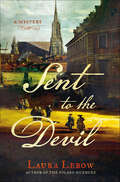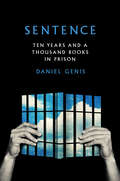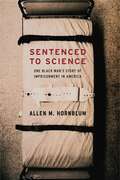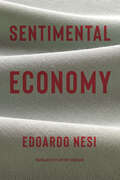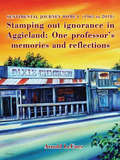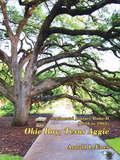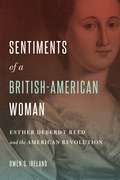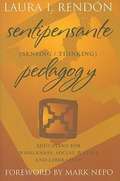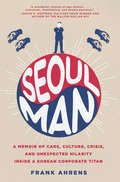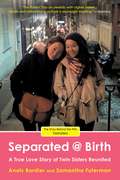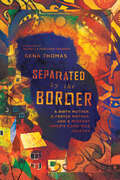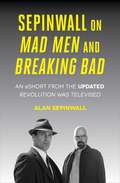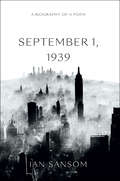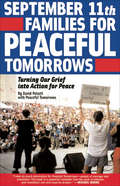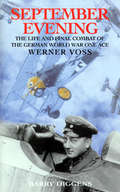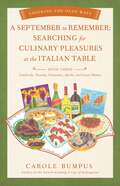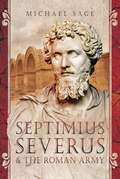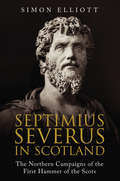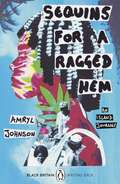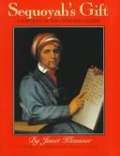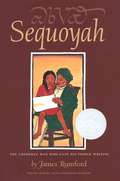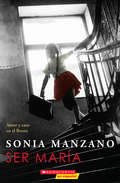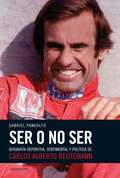- Table View
- List View
Sent to the Devil: A Mystery (Lorenzo Da Ponte Mysteries)
by Laura LebowIn 1788 Vienna, Court Poet Lorenzo Da Ponte is putting some finishing touches on the libretto for the premiere of his new opera with Mozart, Don Giovanni. A huge success when it debuted in Prague, the Emperor has decreed that it shall be performed in Vienna. But Joseph II is off prosecuting a less-than-popular war against the Turks, and the city itself is in a bit of turmoil. There are voices protesting the war, others who see Turks around every corner. Da Ponte, however, just wants to do his work and enjoy life. Alas, these simple desires aren't to be easily fulfilled. First, he's been getting a series of mysterious coded notes from unknown hands, notes that make no sense to him. Then his old friend Alois, a retired priest and academic, is viciously murdered and strange symbols carved into his forehead. Summoned to the police bureau, Da Ponte learns that Alois's murder was not the first. Determined to help find his friend's killer, Da Ponte agrees to help with the secret investigation. Caught in a crossfire of intrigue both in the world of opera and politics, Da Ponte must find the answer to a riddle and expose a killer before he becomes the next victim.
Sentada Aqui a Escutar
by Valerie Hockert Suzana LimaEnquanto guardava recordações e fotos em uma caixa e um álbum e relembrava seus momentos, ela teve a ideia de realizar uma festa, pedindo a cada convidado que trouxesse alguma coisa antiga e nostálgica - um lenço, uma joia, uma pequena ferramenta, um souvenir, botão, um recibo ou coisas semelhantes. Uma mulher de meia-idade, que gosta de entreter os amigos. recentemente perdeu seu marido e achou que sua vida não fazia mais sentido e que não tinha mais utilidade para nada. Enquanto guardava recordações e fotos em uma caixa e um álbum e relembrava seus momentos, ela teve a ideia de realizar uma festa, pedindo a cada convidado que trouxesse alguma coisa antiga e nostálgica - um lenço, uma joia, uma pequena ferramenta, um souvenir, botão, um recibo ou outros pequenos itens. A ideia era que cada convidado teria que contar a história sobre o item. Mal sabia ela que alguns convidados teriam segredos surpreendentes aos quais sua recordação estava ligada. Uma vida anterior, um filho perdido, um acidente - muitos tinham tristezas ligadas a suas recordações, mas as mantinham para continuar ligadas à realidade. Depois de ouvir todas as histórias tristes, a mulher decide que sua vida não era tão ruim, afinal de contas, e que ela tinha um propósito de ser amiga dessas pessoas.
Sentado aquí pescando
by Valerie Hockert Carla J. ScottaMientras Jack pesca sentado a la orilla de uno de los diez mil lagos de Minnesota, se cuestiona cosas y, entonces, su mente viaja con cada pez que atrapa El lucio come dos veces al día: a la mañana y al atardecer. Nunca se le había ocurrido eso antes, aunque no suele ir a pescar solo, pero todos sus amigos tenían otras cosas que hacer hoy. Comer por la mañana. Desayuno. Sí, hay que desayunar. Esto es lo curioso: cuando desayuna, como esos raros domingos en que va a desayunar con la familia después de la primera misa del día, se siente satisfecho y entonces no vuelve a comer hasta el final del día, y entonces, come algo liviano, como una ensalada de pechuga de pollo. Quizás debiera comer así todos los días y bajaría la barriga cervecera. Hablando de barrigas cerveceras. Son puras mentiras. Y de mentiras pasamos al crappie: ¿de dónde proviene ese nombre? Aunque casi todos los que conoce lo pronuncian “cropi”. Los crappies se alimentan de piscardos, de otros peces pequeños y de insectos que tienen aspecto de excremento (que, en inglés, se dice “crap”). Quizás por eso le pusieron ese nombre. Como el grandote Bill que asusta bastante con sus modos hoscos… quizás la gente piensa que se los va a comer. Aunque podría hacerlo, y luego escupirlos si tuviera la oportunidad. Como el devorador morado. Hablando de eso, es cierto que usa muchas camisetas de color morado (camisetas morado oscuro y camisas morado claro). Y verde. Jack continúa comparando a cada una de las personas importantes de su vida con los peces del agua, y al hacerlo tiene una revelación…
Sentence: Ten Years and a Thousand Books in Prison
by Daniel GenisA memoir of a decade in prison by a well-educated young addict known as the "Apologetic Bandit"In 2003 Daniel Genis, the son of a famous Soviet émigré writer, broadcaster, and culture critic, was fresh out of NYU when he faced a serious heroin addiction that led him into debt and ultimately crime. After he was arrested for robbing people at knifepoint, he was nicknamed the &“apologetic bandit&” in the press, given his habit of expressing his regret to his victims as he took their cash. He was sentenced to twelve years—ten with good behavior, a decade he survived by reading 1,046 books, taking up weightlifting, having philosophical discussions with his fellow inmates, working at a series of prison jobs, and in general observing an existence for which nothing in his life had prepared him. Genis describes in unsparing and vivid detail the realities of daily life in the New York penal system. In his journey from Rikers Island and through a series of upstate institutions he encounters violence on an almost daily basis, while learning about the social strata of gangs, the &“court&” system that sets geographic boundaries in prison yards, how sex was obtained, the workings of the black market in drugs and more practical goods, the inventiveness required for everyday tasks such as cooking, and how debilitating solitary confinement actually is—all while trying to preserve his relationship with his recently married wife. Written with empathy and wit, Sentence is a strikingly powerful memoir of the brutalities of prison and how one man survived then, leaving its walls with this book inside him, &“one made of pain and fear and laughter and lots of other books.&”
Sentenced to Science: One Black Man's Story of Imprisonment in America (G - Reference, Information and Interdisciplinary Subjects)
by Allen M. Hornblum Harriet WashingtonFrom 1951 until 1974, Holmesburg Prison in Philadelphia was the site of thousands of experiments on prisoners conducted by researchers under the direction of University of Pennsylvania dermatologist Albert M. Kligman. While most of the experiments were testing cosmetics, detergents, and deodorants, the trials also included scores of Phase I drug trials, inoculations of radioactive isotopes, and applications of dioxin in addition to mind-control experiments for the Army and CIA. These experiments often left the subject-prisoners, mostly African Americans, in excruciating pain and had long-term debilitating effects on their health. This is one among many episodes of the sordid history of medical experimentation on the black population of the United States.The story of the Holmesburg trials was documented by Allen Hornblum in his 1998 book Acres of Skin. The more general history of African Americans as human guinea pigs has most recently been told by Harriet Washington in her 2007 book Medical Apartheid. The subject is currently a topic of heated public debate in the wake of a 2006 report from an influential panel of medical experts recommending that the federal government loosen the regulations in place since the 1970s that have limited the testing of pharmaceuticals on prison inmates.Sentenced to Science retells the story of the Holmesburg experiments more dramatically through the eyes of one black man, Edward “Butch” Anthony, who suffered greatly from the experiments for which he “volunteered” during multiple terms at the prison. This is not only one black man’s highly personal account of what it was like to be an imprisoned test subject, but also a sobering reminder that there were many African Americans caught in the viselike grip of a scientific research community willing to bend any code of ethics in order to accomplish its goals and a criminal justice system that sold prisoners to the highest bidder.
Sentimental Economy
by Edoardo NesiIn a warm, perceptive essay that touches on economics, fashion, literature, and politics, the Strega Prize–winning author of Story of My People reflects on the seismic shifts of 2020 and the diverse ways we&’re adapting.Attempting to make sense of the incredible upheaval of 2020—from the devastating impact of COVID-19 to the sudden loss of his father—Edoardo Nesi considers the changing global economy and its effect on our lives. He shares the stories of Alberto Magelli, a small textile entrepreneur; Livia Firth, a prominent advocate for sustainability; Elisa Martelli, a young Sangiovese winemaker; Enrico Giovannini, a leading economist and statistician; Rino Pratesi, a proud butcher from the heart of Tuscany; and more. From the overworked to the unemployed, we&’re all grappling with difficult questions about our current disorienting world: Will we ever feel healthy again, and what will it take to regain &“normality?&” What does progress mean today? Have science and technology let us down? What will the increased prevalence of remote working mean for our cities, and for our lifestyles generally? Deftly weaving together the personal and the economic, Nesi takes us on a fascinating journey to understanding.
Sentimental Journey Home I (1965 to 2018): One Professor's Memories and Reflections
by Arnold LeUnesThe book focuses on assorted memories, meanderings, and musings related to my 52-year tenure as a Professor of Psychological and Brain Sciences at Texas A&M University in College Station, Texas. Reflections on teaching, favorite students, funny and/or quirky colleagues with whom I have worked, the history of the university, fascinating clients I have met in counseling, my wife and children, grandchildren, and great-grandchildren, thirty-five years of playing, officiating, and coaching softball, fifteen summers of Study Abroad experiences with over 400 Aggies, life experiences in Australia, New Zealand, the Fiji Islands, Iran, and a great part of mainland Europe, and stories of people and events that have transpired over the last fifty-two years of my life are grist for the mill. My wish is to amuse, educate, entertain, and perhaps occasionally antagonize the reader with my take on life as I have experienced it in the last half-century. The interested reader may want to also take a look at Okie Boy, Texas Aggie to gain a fuller understanding of the background events that shaped those in the present volume.
Sentimental Journey Home II (1938-1965): Okie Boy, Texas Aggie
by Arnold LeUnesThis book is a chronicle of “coming of age” in the 1940’s, 1950’s and 1960’s in Oklahoma and Texas. The initial pages of this book are devoted to a brief recapitulation concerning the state of my birth, Oklahoma, and my home town, Dewey, and the influence exerted on the culture by Native Americans. Other topics include my ancestry, school days and refl ections on teachers, coaches, and sports teammates, everyday life in small-town Oklahoma in the halcyon days of the 1940’s and 1950’s, and having a second summer home in Texas City, Texas. The middle portion is devoted to my undergraduate experiences at Texas A&M University, at the time an all-male military school. There are takes on favorite professors and interesting classmates. The same can be said for my two tours of duty at the University of North Texas in Denton where I received my master’s and doctoral degrees. The third major section is devoted to my cherished 32 months in the US Army. This book is intended to be a companion volume to Stamping out ignorance in Aggieland, and it is my fondest hope that it provides additional insights into what has been a wonderful 80-year ride for this old Professor, Okie Boy, and Texas Aggie.
Sentiments of a British-American Woman: Esther DeBerdt Reed and the American Revolution
by Owen S. IrelandAt the time of her death in 1780, British-born Esther DeBerdt Reed—a name few know today—was one of the most politically important women in Revolutionary America. Her treatise “The Sentiments of an American Woman” articulated the aspirations of female patriots, and the Ladies Association of Philadelphia, which she founded, taught generations of women how to translate their political responsibilities into action. DeBerdt Reed’s social connections and political sophistication helped transform her husband, Joseph Reed, from a military leader into the president of the Supreme Executive Council of Pennsylvania, a position analogous to the modern office of governor.DeBerdt Reed’s life yields remarkable insight into the scope of women’s political influence in an age ruled by the strict social norms structured by religion and motherhood. The story of her courtship, marriage, and political career sheds light both on the private and political lives of women during the Revolution and on how society, religion, and gender interacted as a new nation struggled to build its own identity.Engaging, comprehensive, and built on primary source material that allows DeBerdt Reed’s own voice to shine, Owen Ireland’s expertly researched biography rightly places her in a prominent position in the pantheon of our founders, both female and male.
Sentipensante (Sensing/Thinking) Pedagogy: Educating For Wholeness, Social Justice and Liberation
by Mark Nepo Laura I. RendónLaura Rendon is a scholar of national stature, known for her research on students of color and first-generation college students, and on the factors that promote and impede student success. The motivation for the quest that Laura Rendon shares in this book was the realization that she, along with many educators, had lost sight of the deeper, relationship-centered essence of education, and lost touch with the fine balance between educating for academics and educating for life. Her purpose is to reconnect readers with the original impulse that led them to become educators; and to help them rediscover, with her, their passion for teaching and learning in the service to others and for the well being of our society. She offers a transformative vision of education that emphasizes the harmonic, complementary relationship between the sentir of intuition and the inner life, and the pensar of intellectualism and the pursuit of scholarship; between teaching and learning; formal knowledge and wisdom; and between Western and non-Western ways of knowing. In the process she develops a pedagogy that encompasses wholeness, multiculturalism, and contemplative practice, that helps students transcend limiting views about themselves, fosters high expectations, and helps students to become social change agents. She invites the reader to share her journey in developing sentipensante pedagogy, and to challenge seven entrenched agreements about education that act against wholeness and the appreciation of truth in all forms. She offers examples of her own teaching and of the classroom practices of faculty she encountered along the way; as well as guidance on the challenges, rewards and responsibilities that anyone embarking on creating a new vision of teaching and learning should attend to. Though based on the author's life work in higher education, her insights and approach apply equally to all teaching and learning contexts.
Seoul Man: A Memoir of Cars, Culture, Crisis, and Unexpected Hilarity Inside a Korean Corporate Titan
by Frank AhrensRecounting his three years in Korea, the highest-ranking non-Korean executive at Hyundai sheds light on a business culture very few Western journalists ever experience, in this revealing, moving, and hilarious memoir.When Frank Ahrens, a middle-aged bachelor and eighteen-year veteran at the Washington Post, fell in love with a diplomat, his life changed dramatically. Following his new bride to her first appointment in Seoul, South Korea, Frank traded the newsroom for a corporate suite, becoming director of global communications at Hyundai Motors. In a land whose population is 97 percent Korean, he was one of fewer than ten non-Koreans at a company headquarters of thousands of employees.For the next three years, Frank traveled to auto shows and press conferences around the world, pitching Hyundai to former colleagues while trying to navigate cultural differences at home and at work. While his appreciation for absurdity enabled him to laugh his way through many awkward encounters, his job began to take a toll on his marriage and family. Eventually he became a vice president—the highest-ranking non-Korean at Hyundai headquarters.Filled with unique insights and told in his engaging, humorous voice, Seoul Man sheds light on a culture few Westerners know, and is a delightfully funny and heartwarming adventure for anyone who has ever felt like a fish out of water—all of us.
Separated @ Birth: A True Love Story of Twin Sisters Reunited
by Samantha Futerman Anais BordierImagine one day opening Facebook and reading a message from a stranger that says, "I think we might be twins...don't freak out..."It all began when design student Anaïs Bordier viewed a YouTube video and saw her own face staring back. After some research, Anaïs found that the Los Angeles actress Samantha Futerman was born in a South Korean port city called Busan on November 19, 1987--the exact same location and day that Anaïs was born. This propelled her to make contact--via Facebook. One message later, both girls wondered: Could they be twins?Thus begins their remarkable journey to build a relationship as sisters, continents apart. Over Facebook, Twitter, and Skype, they learned that they shared much more than a strikingly similar appearance. Eventually, they traveled to Korea together to discover more about the land of their separation. One of Facebook's Top Ten Stories of 2013, Separated @ Birth is a story that spans the world and peels back some of the complex and emotional layers of foreign adoption.on.
Separated by the Border: A Birth Mother, a Foster Mother, and a Migrant Child's 3,000-Mile Journey
by Gena ThomasIn 2017 five-year-old Julia traveled with her mother, Guadalupe, from Honduras to the United States.
Sepinwall On Mad Men and Breaking Bad: An eShort from the Updated Revolution Was Televised
by Alan SepinwallFrom the updated edition of The Revolution Was Televised, Alan Sepinwall's analysis of Breaking Bad and Mad Men, featuring new commentary and insights on the complete series and controversial finales.
September 1, 1939: A Biography of a Poem
by Ian SansomOne poet, his poem, New York City, and a world on the verge of change.W. H. Auden, a wunderkind, a victim-beneficiary of a literary cult of personality, became a scapegoat and a poet-expatriate largely excluded from British literary history because he left. And his poem, “September 1, 1939,” was his most famous and celebrated, yet one which he tried to rewrite and disown and which has enjoyed—or been condemned—to a tragic and unexpected afterlife.These are the contributing forces underlying Ian Sansom’s work excavating the man and his most celebrated piece of literature. But Sansom’s book is also about New York City: an island, an emblem of the Future, magnificent, provisional, seamy, and in 1939—about to emerge as the defining twentieth-century cosmopolis, the capital of the world.And so it is also about a world at a point of change—about 1939, and about our own Age of Anxiety, about the aftermath of September 11, when many American newspapers reprinted Auden’s poem in its entirety on their editorial pages.More than a work of literary criticism or literary biography, this is a record of why and how we create and respond to great poetry.
September 11th Families for Peaceful Tomorrows: Turning Tragedy into Hope for a Better World
by David Potorti Peaceful TomorrowsThe true story of a group of people devastated by loss—and inspired to save others from the same heartbreak: &“Very personal and moving accounts.&”—Publishers Weekly Told through essays and correspondence, this is the tale of Peaceful Tomorrows—an anti-war organization made up of survivors of the 9/11 attacks as well as friends and family members of those who died that day. In the midst of shock, rage, and a rush to war, these are people who, though they had every reason for anger, consciously chose a different path—persisting even as others accused them of naiveté, cowardice, or a lack of patriotism. In the hope of sparing others from the suffering they had endured, they protested the dropping of bombs on civilians in Afghanistan and Iraq, and advocated for nonviolent solutions to the problem of terrorism—to seek justice and problem-solving rather than a cycle of retaliation—and were twice nominated for the Nobel Peace Prize. This is their remarkable story.
September Evening: The Life and Final Combat of the German World War One Ace: Werner Voss
by Barry DiggensThe true story of the daredevil flying ace who rivaled the Red Baron, with photos included. This is the first full-length biography of nineteen-year-old Werner Voss, a legend in his lifetime and the youngest recipient of the Pour le Mérite, Germany&’s highest award for bravery in WWI. At the time of his death he was considered by many, friend and foe alike, to be Germany&’s greatest ace—and, had he lived, Voss would almost certainly have overtaken Manfred von Richthofen&’s victory total by early spring of 1918. Voss is perhaps best remembered for his outstanding courage, his audacity in the air, and the prodigious number of victories he achieved before being killed in one of the most swashbuckling and famous dogfights of the Great War: a fight involving James McCudden and 56 Squadron RFC, the most successful Allied scout squadron. Yet the life of Voss and the events of that fateful September day are surrounded by mystery and uncertainty, and even now aviation enthusiasts continue to ask questions about him on an almost daily basis. Barry Diggens was determined to uncover the truth, and September Evening unearths and analyzes every scrap of information concerning this extraordinary young man. Diggens&’s conclusions are sometimes controversial but his evidence is persuasive, and this study will be welcomed by, and of great interest to, the aviation fraternity worldwide.
September to Remember: Savoring the Olde Ways Series: Book Three (Savoring the Olde Ways Series)
by Carole BumpusJoin Carole Bumpus and her husband in Book Three of the Savoring the Olde Ways series as they take you on their first culinary trek through Italy, including regions of Lombardy, Tuscany, Compania, Apulia, and Lazio. Embrace unforgettable characters such as lovely guides Lisa and Margarita, who introduce you to the &“true Italian experience.&” Sup on traditional foods (cucina povera) including local tortelli, pappardelle al cinghiale (wild boar), bistecca all Fiorentina, pasta alla vongole (clams), or saltimbocca alla Romana. Sip regional wines, along with memorable digestivos like limoncello and grappa. Find yourself dancing at harvest festivals, climbing through Etruscan tombs, traipsing among Roman ruins, or bathing in ancient Roman termés (hot springs). Climb to the heights in elegant Capri on the gorgeous Amalfi Coast, or to the top of the &“holiest of holies&” at St. Peter&’s Basilica. Soak up ancient and cultural history in Milan, Firenze (Florence), Amalfi, Pompeii, Lecce, and Rome. Bask in the sun and opalescent waters along the rugged coasts of the Tyrrhenian and Adriatic Seas. And, best of all, capture a rare glimpse into the secrets of the Mediterranean psyche while sharing a good meal with new friends. It is truly the trip of a lifetime.
Septimius Severus & the Roman Army
by Michael SageA detailed account of Severus&’ reign with particular emphasis on his military campaigns against the Parthians and the Garamantes in North Africa. The assassination of Emperor Commodus in 192 sparked a civil war. Septimius Severus emerged as the eventual victor and his dynasty (the Severans) ruled until 235. He fought numerous campaigns, against both internal rivals and external enemies, extending the Empire to the east (adding Mesopotamia), the south (in Africa) and the north (beyond Hadrian&’s Wall). The military aspects of his reign, including his reforms of the army, are the main focus of this new study. After discussing his early career and governorship of Pannonia, Michael Sage narrates his war with Pescennius Niger, the siege of Byzantium, and the campaign in northern Mesopotamia that added it as a province. The much more difficult campaign against Clodius Albinus in Gaul is also studied in detail, as is that in North Africa. The narrative concludes with an account of the last campaign in Britain and Severus&’ death. The final chapters analyze Septimius&’ reforms of the army and assess their impact on events of the next seventy years until the accession of Diocletian. His greatest weakness was his love for his family. Like Marcus Aurelius he loved his children too much. They failed to maintain what he had bequeathed them.&“Sage performs a masterful job putting Severus into a broad strategic overview of the times.&” —The Historical Miniatures Gaming Society&“Highly recommended to fans of the Roman Empire, and of the Roman Military, old and new alike. It is easily accessible and well written, and it features research of the highest quality.&” —Ancient Warfare
Septimius Severus in Scotland: The Northern Campaigns of the First Hammer of the Scots
by Simon ElliottSince 1975 much new archaeological evidence has come to light to illuminate the immense undertaking of Septimius Severus campaigns in Scotland, allowing for the first time the true story of this savage invasion to be told. In the early 3rd century Severus, the aging Roman emperor, launched an immense shock and awe assault on Scotland that was so savage it resulted in eighty years of peace at Romes most troublesome border. The book shows how his force of 50,000 troops, supported by the fleet, hacked their way through the Maeatae around the former Antonine Wall and then pressed on into Caledonian territory up to the Moray Firth.Severus was the first of the great reforming emperors of the Roman military, and his reforms are explained in the context of how he concentrated power around the imperial throne. There is also an in-depth look at the political, economic and social developments that occurred in the Province.This book is aimed at all who have an interest in both military and Roman history. It will particularly appeal to those who are keen to learn more about the narrative of Romes military presence in Britain, and especially the great campaigns of which Severus assault on Scotland is the best example.
Sequins for a Ragged Hem (Black Britain: Writing Back #8)
by Amryl JohnsonA beautifully atmospheric memoir and travelogue from poet Amryl Johnson depicting her journey from the UK to Trinidad in the 1980s'Memories demanded that I complete this book. If what I experienced was, in fact, a haunting, I believe I have now laid these ghosts to rest in a style which I hope will satisfy even the most determined ones.'Amryl Johnson came to England from Trinidad when she was eleven. As an adult in 1983, ready for a homecoming, she embarks on a journey through the Caribbean searching for home, searching for herself.Landing in Trinidad as carnival begins, she instantly surrenders to the collective, pulsating rhythm of the crowd, euphoric in her total freedom. This elation is shattered when she finds the house where she was born has been destroyed. She cannot escape - nor wants to - from the inheritance of colonialism.Her bittersweet welcome sets the tone for her intoxicating exploration of these distinct islands. In evocative, lyrical prose Sequins for a Ragged Hem is an astonishingly unique memoir, interrogating the way our past and present selves live alongside one another.Selected by Booker Prize-winning author Bernardine Evaristo, this series rediscovers and celebrates pioneering books from Black Britain and the diaspora, which remap the nation and reframe our history.
Sequoyah's Gift: A Portrait of the Cherokee Leader
by Janet Klausner Duane KingA biography of the Cherokee Indian who created a method for his people to write and read their own language.
Sequoyah: The Cherokee Man Who Gave His People Writing
by James RumfordThe story of Sequoyah is the tale of an ordinary man with an extraordinary idea-to create a writing system for the Cherokee Indians and turn his people into a nation of readers and writers. The task he set for himself was daunting. <P><P>Sequoyah knew no English and had no idea how to capture speech on paper. <P><P>But slowly and painstakingly, ignoring the hoots and jibes of his neighbors and friends, he worked out a system that surprised the Cherokee Nation-and the world of the 1820s-with its beauty and simplicity. <P><P>James Rumford's Sequoyah is a poem to celebrate literacy, a song of a people's struggle to stand tall and proud. <P><P>Robert F. Sibert Informational Book Honor Award.
Ser María (Becoming Maria): Amor y caos en el Bronx
by Sonia ManzanoPura Belpre Honor winner for The Revolution of Evelyn Serrano and one of America's most influential Hispanics--'Maria' on Sesame Street--delivers a beautifully wrought coming-of-age memoir.Set in the 1950s in the Bronx, this is the story of a girl with a dream. Emmy award-winning actress and writer Sonia Manzano plunges us into the daily lives of a Latino family that is loving--and troubled. She is a child living amidst the squalor of a boisterous home that is filled with noisy relatives and neighbors. Each day she is glued to the TV screen that blots out the painful realities of her existence and also illuminates the possibilities that lie ahead. But--click!--when the TV goes off, Sonia is taken back to real-life--the cramped, colorful world of her neighborhood and an alcoholic father. This memoir paints a lasting portrait of a girl's resilience as she grows up to become an inspiration to millions. Ambientada en la década de 1950 en el Bronx, esta es la historia de una niña con un sueño. Sonia Manzano, actriz ganadora del premio Emmy, nos sumerge en la vida cotidiana de una familia latina que es amorosa, pero que está llena de problemas.
Ser o no ser: Biografía deportiva, sentimental y política de Carlos Alberto Reutemann
by Gabriel PandolfoEsta biografía descubre con agudeza los secretos de un hombre solitario,un piloto con talento y candidato por inconveniencia. Un jurado de notables del automovilismo lo definió con una exactitud quetrasciende las pistas: era un piloto con talento, pero inconsistente.Condenado a ser el segundo de todas las escuderías, perdió el campeonatode 1981 por un punto, boicoteado por su propio equipo. ¿Problemasemocionales? ¿Carácter huraño? ¿Poco confiable? ¿Incapacidad paratrabajar en equipo? Preguntas que se han hecho los expertos de laFórmula 1 y que luego también se harían diversos referentes del mundopolítico ante sus vacilaciones hamletianas.Ser o no ser, candidato a presidente. Esa fue, es y será la cuestión.Con su ex mujer, Mimicha Bobbio, tuvo una relación tumultuosa; con laactual, Verónica Ghío, intenta tejer un improbable entramado políticoque le otorgue seguridad absoluta. Fue uno de los primeros enapoyar a Carlos Menem en su carrera por desguazar al Estado y ponerlo enmanos privadas. Más tarde, el arco antikirchnerista se lo disputaba:Duhalde, Carrió, Solá,Macri, Cobos...
